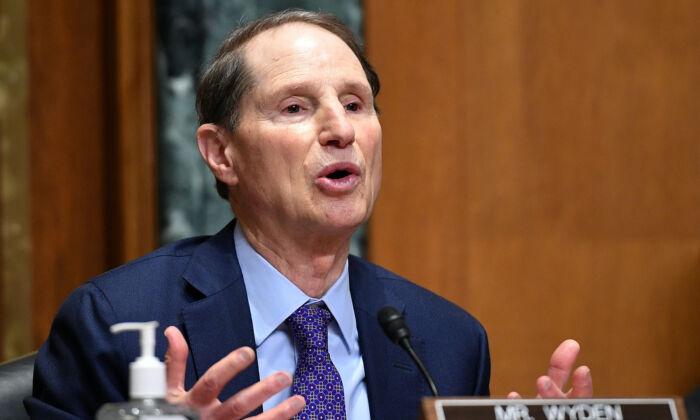Inaccurate health care provider directories cause stress, unnecessary expense, and aggravation for insurance customers every day, according to witnesses testifying before a Senate Committee on Finance hearing on May 3.
“Ghost networks are an ongoing, persistent problem,” Chairman Ron Wyden (D-Ore.) said.
Witnesses called on Congress to take steps to standardize directories and hold insurance companies accountable for the issue.
Ghost networks are formed when a health insurance plan’s directory includes inaccurate information, such as listings for doctors who have retired, never worked for the listed office, or are outside the plan’s network.
Wyden said this often becomes apparent only after a customer has enrolled in the plan. His staff did a “secret shopper” survey of health plans and successfully booked an appointment 18 percent of the time. Wyden said one staff member was connected with a high school health office.
“In my view, it’s a breach of contract,” he said. “The last thing [customers] need from an insurance company is a symphony of ‘please hold’ music.”

Keris Jan Myrick told the committee that she has personal experience with the frustration that a ghost network can provoke.
Myrick is vice president of partnerships for Inseparable, an organization that advocates for improving mental health care policy. During the Obama presidency, Myrick was a director in the U.S. Health and Human Services’ Substance Abuse and Mental Health Services Administration.
Lots of Hay, Very Few Needles
“Lots of hay, very few needles. Unfortunately, my experience is not unique,” Myrick said.Myrick, who requires treatment for schizophrenia, said that when she finally found a psychiatrist in Washington who was taking new patients, she was told that the doctor didn’t treat schizophrenia.
She was forced to make monthly trips back to Los Angeles to continue seeing her original doctor. Myrick told the committee that people with her illness but without resources could expect to deal with homelessness, the criminal courts, and other problems.
“The consequences are dire,” Myrick said.
Standardization Is Key
“Achieving directory accuracy is not simple,” Resneck told the committee.He said each plan has its own system for updating directory information. So if a doctor is listed in a dozen health care networks and makes a change, his staff must update each directory. Even when they do that, there’s no guarantee that the changes will be made.
Resneck said a strong regulatory system would restore consumer confidence in a health care system that can’t help them find a doctor.
“Enough is enough. We can fix this,” he said.
Process Is Demoralizing
Patients who can’t find doctors who will see them often feel that the issue is their fault.“The process, at best, is demoralizing,” Trestman said.
On top of all this, Mary Giliberti, of Mental Health America, in Alexandria, Virginia, said there’s little incentive for health plans to address the issue.
Some plans intentionally inflate their directories to make it appear that they have more extensive networks than they do. Health insurance providers face no real consequences for this practice, Giliberti said.
Customer on the Hook
Consumers who see an out-of-network provider are responsible for the total cost of their care. It doesn’t matter that they relied on an inaccurate directory to find that doctor.Giliberti said this isn’t fair.
“Why should the patient be on the hook here? It should not be the responsibility of the individual,” she said.
Giliberti and other witnesses recommended a “carrot and stick” solution. Providers that kept accurate directories would be rewarded, while those that didn’t would be penalized. The witnesses called for three main elements in any plan: oversight by regulatory authorities, transparency in the process, and accountability.
Dr. Jeff Rideout said his organization had developed such a system. He also said it can be expanded.
Rideout is with the Integrated Healthcare Association of Oakland, California. He said the association had developed a system named Symphony that has a central repository into which health insurance plans place their directory information. The programs are required to update their entries when necessary.
The system automatically audits the directories every 90 days. Symphony will make what corrections it can and notify members of necessary changes it can’t make.
Rideout said developers are constantly updating Symphony by adding data categories to help consumers find the needed doctors and health care providers. He said having the central repository makes the job easier.
Still, he conceded that maintaining the system is a “complex undertaking.”





